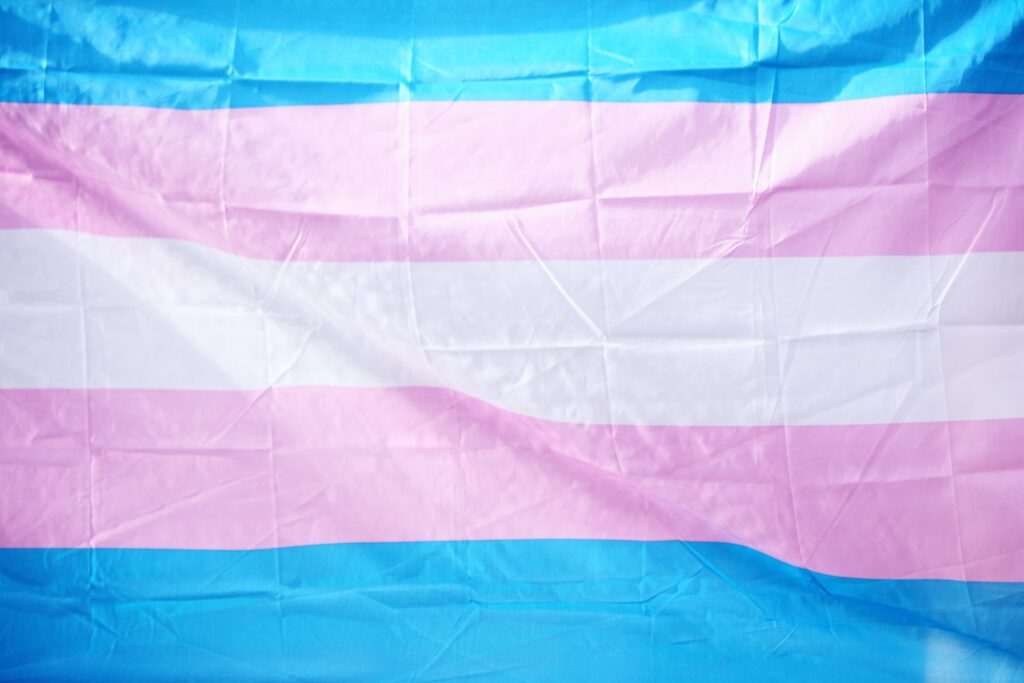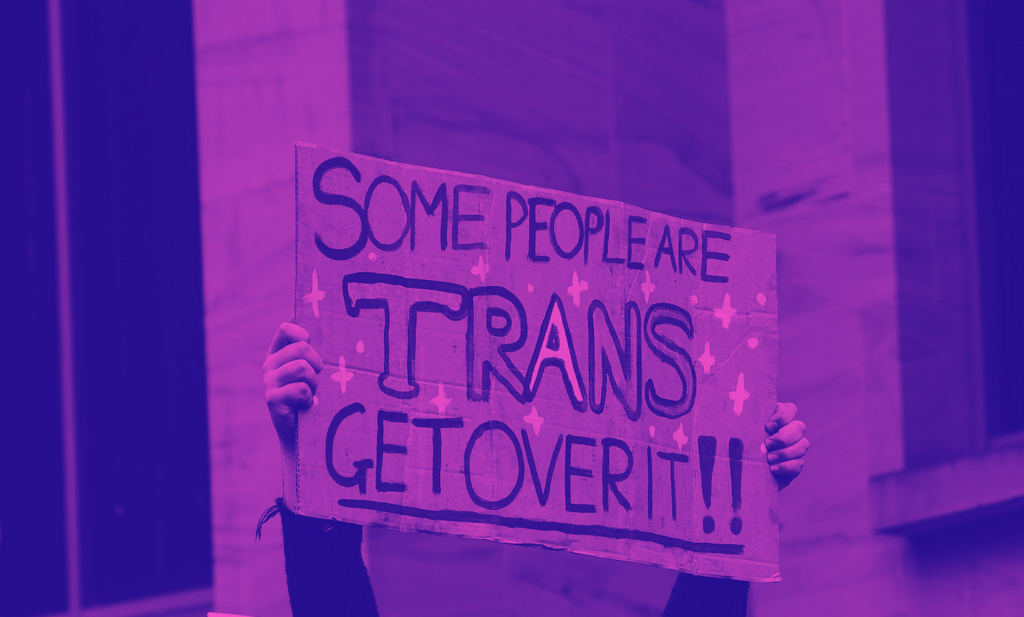
I may be crazy but that don’t make me wrong
Marsha P. Johnson
Today, on International Day of Transgender Identity, I pay tribute to the trailblazing individuals who have fought tirelessly for trans rights and recognition. One such icon is Marsha P Johnson, a prominent figure in the LGBTQ+ movement, known for her famous saying “Pay It No Mind”.
As I take a look at Marsha’s life and the struggles faced by trans individuals throughout recent history and today, I hope to inspire you to stand in solidarity with the trans community and work towards dismantling oppression.
Marsha P Johnson: A Trailblazer for Trans Rights
Marsha P Johnson, was an African-American transgender woman and a pioneering figure in the fight for LGBTQ+ rights.
Marsha’s activism began in the late 1960s, most notably during the historic Stonewall Riots in 1969. Alongside Sylvia Rivera, Marsha co-founded STAR (Street Transvestite Action Revolutionaries), an organisation dedicated to supporting homeless LGBTQ+ youth.
Despite facing numerous challenges in her life, Marsha remained a beacon of hope and resilience for the trans community. Her famous motto, “Pay It No Mind”, was a powerful response to the discrimination and prejudice she faced daily. This saying serves as a reminder to stay strong and unapologetic in the face of adversity, and it continues to inspire countless individuals today.
The Life and Legacy of Marsha P. Johnson
Marsha P. Johnson was a pioneering transgender activist, performer, and crucial figure in the LGBTQ+ rights movement. Born in 1945 in Elizabeth, New Jersey, Marsha moved to New York City in the 1960s, where she became a prominent and beloved figure in the Greenwich Village LGBTQ+ community.
- Stonewall Riots: Marsha P. Johnson is widely known for her involvement in the historic Stonewall Riots in 1969. While the exact details of her role during the riots vary, it is generally agreed that she was among the key activists who fought back against the police during the raid on the Stonewall Inn. Her bravery and resilience in the face of police violence played a crucial role in sparking the modern LGBTQ+ rights movement.
- Activism and Advocacy: Alongside her close friend Sylvia Rivera, Marsha co-founded the Street Transvestite Action Revolutionaries (STAR) in 1970. This groundbreaking organization provided housing, food, and support for homeless LGBTQ+ youth in New York City. STAR was one of the first organizations of its kind, highlighting the importance of intersectional activism in addressing the unique challenges faced by transgender and gender-nonconforming individuals.
- Performer and Drag Queen: Marsha was a well-known and talented performer in the New York City drag scene, often performing with the legendary drag performance group, the Hot Peaches. Her vibrant personality, unique sense of style, and infectious charisma made her a beloved figure within the community.
- “Pay It No Mind”: Marsha’s famous catchphrase, “Pay It No Mind,” exemplified her unapologetic attitude towards her identity and served as a powerful reminder of the resilience and strength of the transgender community in the face of adversity.
- Legacy: Marsha P. Johnson’s life was tragically cut short in 1992, when her body was found in the Hudson River. However, her legacy as a trailblazer in the fight for LGBTQ+ rights lives on. Today, her courage and activism continue to inspire generations of transgender individuals and allies to push for greater acceptance, equality, and justice.
In honour of Marsha P. Johnson and other trans trailblazers, let us continue to advocate for trans rights, celebrate the resilience and strength of the trans community, and work towards a world that embraces diversity and inclusion.
Trans Identities in LGBTQ+ Histories
Trans individuals have long been part of the broader LGBTQ+ movement, yet their stories often remain overshadowed or overlooked. It’s essential to recognise the invaluable contributions of trans activists like Marsha P Johnson, Sylvia Rivera, and countless others who have made significant strides in fighting for trans* rights.
Take the time to learn more about some of these people by clicking on the links below:
- Marsha P Johnson: Instrumental in the Stonewall Riots and co-founder of STAR.
- Sylvia Rivera: Alongside Marsha, played a crucial role in the early days of the LGBTQ+ rights movement.
- Miss Major Griffin-Gracy: A veteran of the Stonewall Riots and a powerful advocate for trans rights, particularly for trans women of colour.
- Christine Jorgensen: A pioneer in trans awareness, Christine brought visibility to the trans community through her public transition in the 1950s.
- Alan L. Hart: An early 20th-century physician and radiologist who was one of the first trans men to undergo a hysterectomy and live the remainder of his life as a man.
- Renée Richards: A professional tennis player who underwent sex reassignment surgery in 1975 and fought for the right to compete as a woman, paving the way for trans athletes.
- Coccinelle: A French actress, singer, and entertainer who was a prominent figure in the European trans community and one of the first trans women to undergo sex reassignment surgery in France.
- Leslie Feinberg: A transgender activist, author, and speaker who was an early advocate for transgender rights and raised awareness of gender non-conforming individuals.
- Julia Serano: A writer, performer, and activist who has made significant contributions to transgender theory, feminism, and the understanding of gender and sexuality through her books and academic work.
- Kylar Broadus: A lawyer, professor, and trans rights activist who has worked extensively to advance legal protections for trans* people in the USA.
- CeCe McDonald: An activist and speaker who gained attention after surviving a violent attack and being incarcerated in a men’s prison in America, highlighting the systemic issues faced by trans women of colour within the criminal justice system.
- Laverne Cox: An actress and advocate who gained widespread recognition for her role in the television series “Orange Is the New Black,” becoming the first openly trans* person to be nominated for a Primetime Emmy Award.
- Caroline Cossey (also known as Tula): A model and actress who was the first openly transgender woman to pose for Playboy and appear in a James Bond film. She has also been an advocate for trans rights, fighting for legal recognition of her gender in the UK.
- Jammidodger (Jamie Raines): A British YouTuber, speaker, and trans* rights advocate who documented his transition on his YouTube channel, providing a valuable resource and insight for other transgender individuals.
By acknowledging these groundbreakers, and the countless others that I haven’t mentioned, we can ensure that trans voices are no longer silenced or marginalised.
Celebrating International Day of Transgender Identity
International Day of Transgender Identity is an opportunity for us to honour the trans community and acknowledge their resilience in the face of extreme and growing adversity. To celebrate this day and show support, consider the following actions:
- Educate yourself: Read articles, watch documentaries, and listen to podcasts that highlight trans voices and experiences.
- Share stories: Amplify the voices of trans individuals on social media and engage in conversations with friends and family about the importance of trans rights.
- Advocate for policy changes: Contact your local politicians to support legislation that benefits and protects the trans community.
- Be an ally: Offer a safe and supportive environment for trans individuals, and educate others about the importance of allyship.
Oppression and Its Impact on Trans Individuals

Trans individuals often face significant challenges and oppression, both systemic and interpersonal, which can adversely affect their mental health, well-being, and overall quality of life.
The various forms of oppression experienced by trans people include discrimination, prejudice, and violence, which can manifest in different ways, such as:
- Employment discrimination: Trans individuals may face difficulties in obtaining or maintaining employment due to bias or discriminatory hiring practices.
- Healthcare disparities: Trans people frequently encounter barriers to accessing adequate healthcare, including lack of knowledgeable healthcare professionals, and experiences of discrimination in healthcare settings.
- Harassment and violence: Trans individuals are at an increased risk of experiencing harassment, verbal abuse, and physical violence due to their gender identity. This can lead to feelings of fear, anxiety, and isolation.
- Legal challenges: Many trans people face difficulties in obtaining legal recognition of their gender identity, which can result in restricted access to essential services and increased vulnerability to discrimination.
- Social stigma and prejudice: Trans individuals may face rejection or judgment from family, friends, and society at large, leading to feelings of isolation, loneliness, and decreased self-esteem.
- Media portrayal: Trans individuals are frequently subjected to inaccurate and harmful portrayals in the media, which can perpetuate stereotypes and misinformation. This often leads to a lack of understanding and increased discrimination towards the trans community, contributing to a hostile environment for trans individuals.
- Political exploitation: Governments regularly politicise trans issues, using them as a tool to further their agendas, sometimes at the expense of trans rights and well-being. The politicisation of trans lives can create an adversarial atmosphere, resulting in increased marginalisation and discrimination against trans people.
Online Therapy: A Resource for Navigating Trans Identities
As an online therapist, I work with clients from across the UK and Europe, helping them find clarity and meaning in their lives. Online therapy can be particularly beneficial for trans individuals who may be struggling with self-esteem, belonging, and navigating their identity.
- Safe space: Online therapy provides a confidential and non-judgmental environment for individuals to explore their thoughts and feelings.
- Accessibility: With the option to connect from home, online therapy can be more accessible for those who may face barriers to in-person counselling.
Conclusion
As we celebrate the International Day of Transgender Identity, it is essential to acknowledge the diverse and influential trans individuals who have made significant contributions to LGBTQ+ history, both in the UK and worldwide. Their resilience, determination, and advocacy have paved the way for greater visibility, rights, and acceptance for the trans community.
By educating ourselves about the challenges they’ve faced, we can better understand the importance of continued support for trans rights and work towards a more inclusive, compassionate society.

